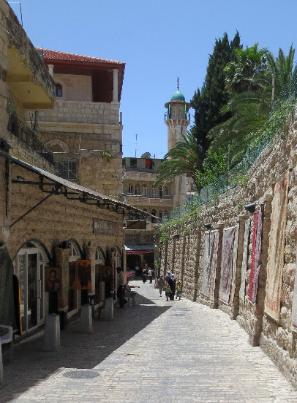
Where We Be
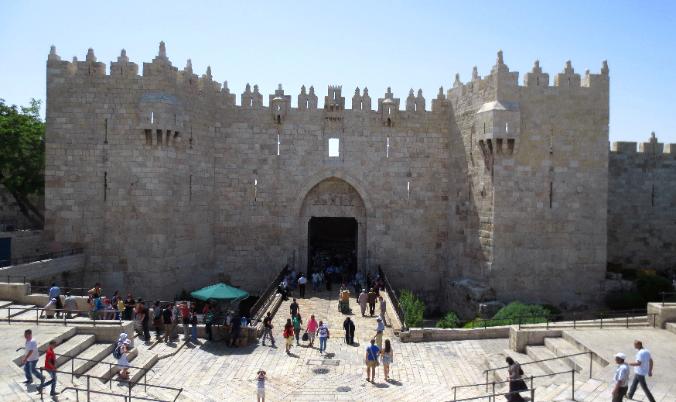
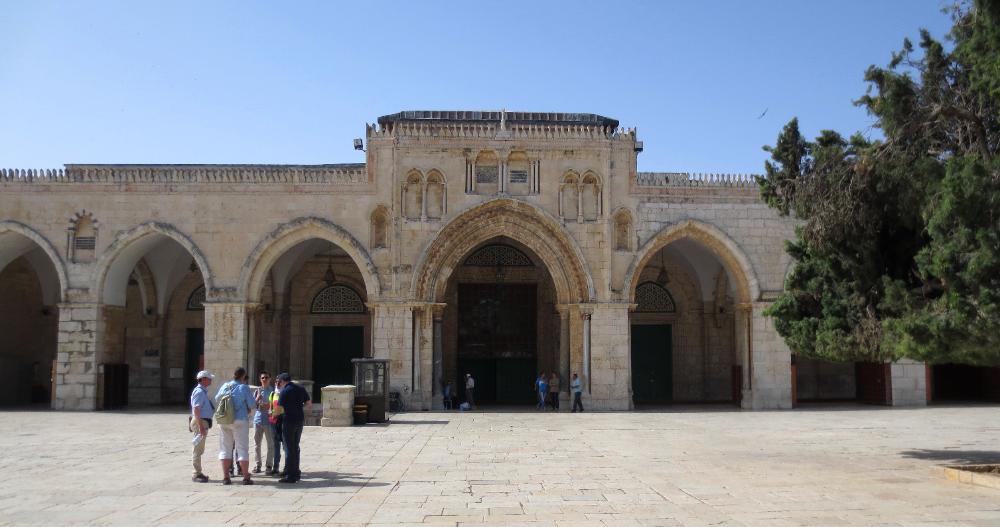
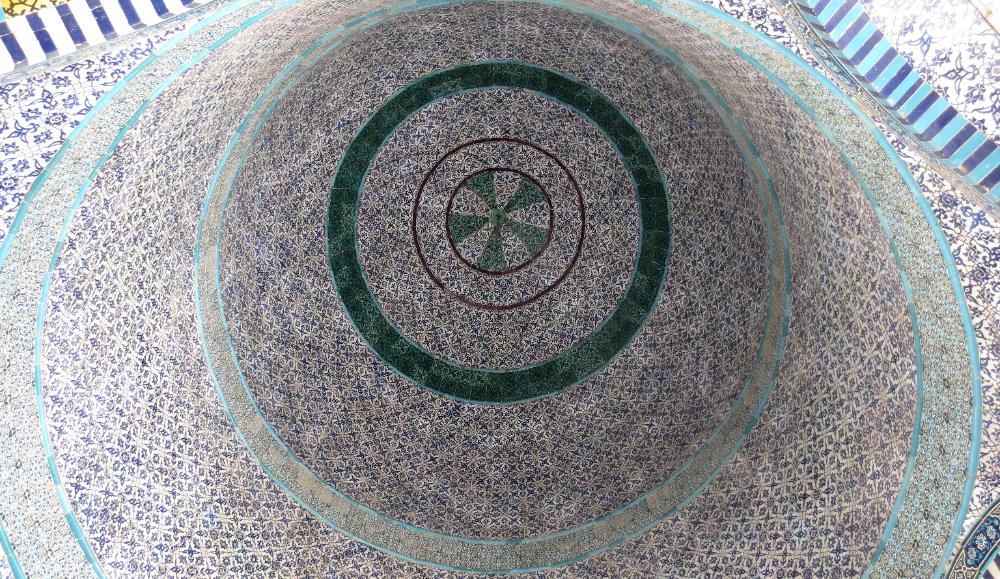
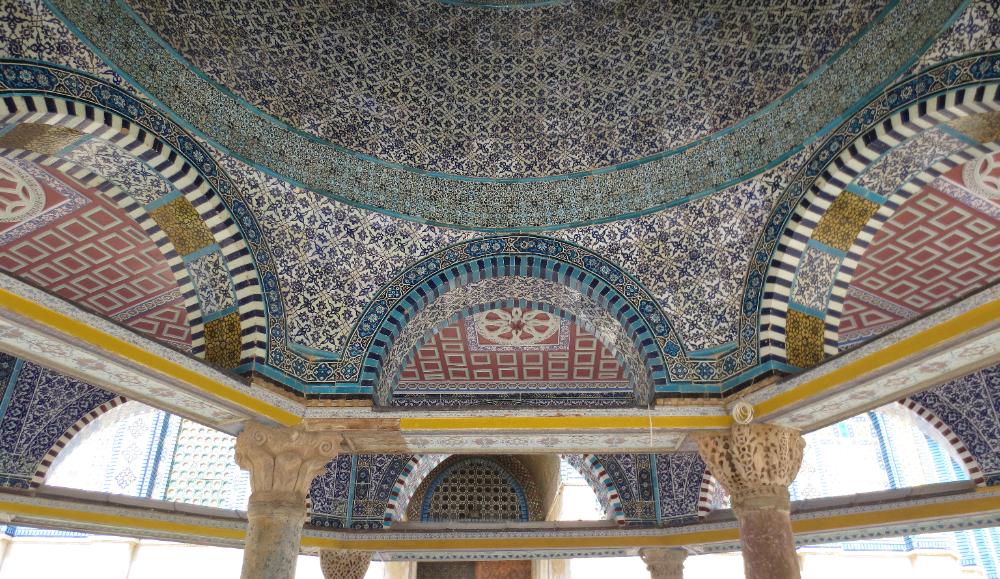
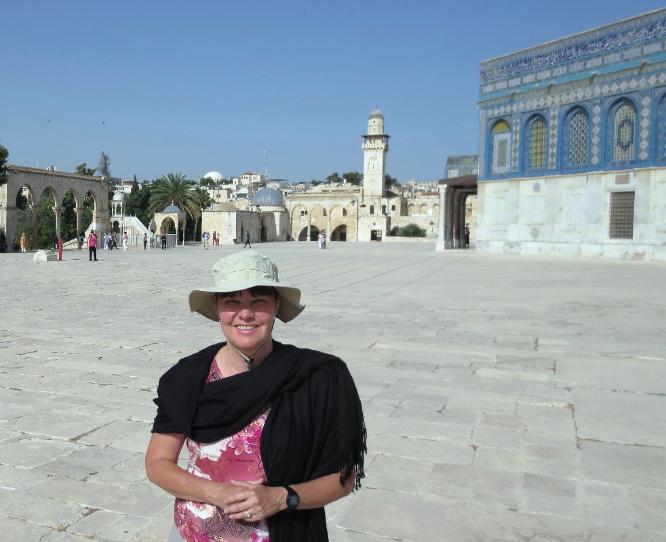
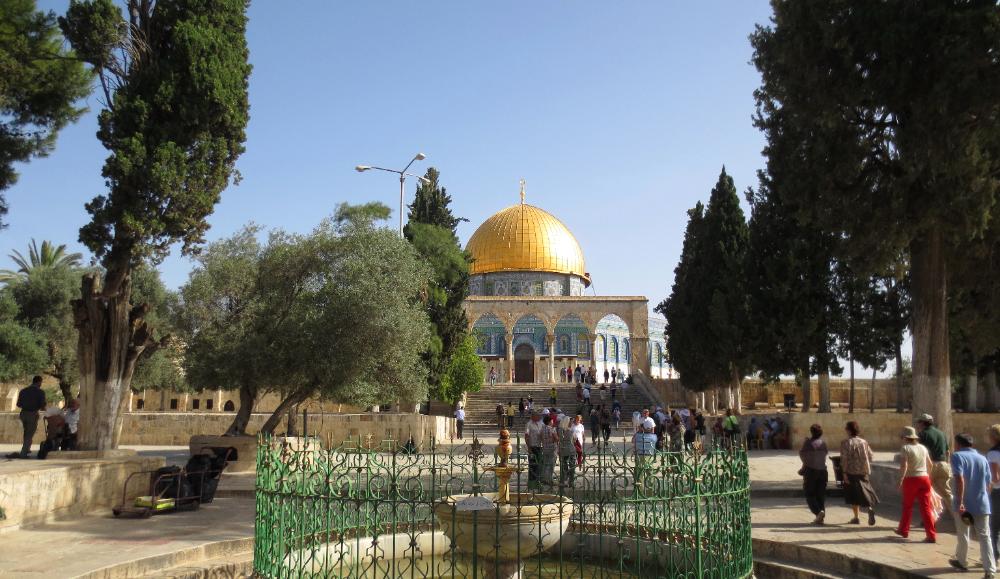
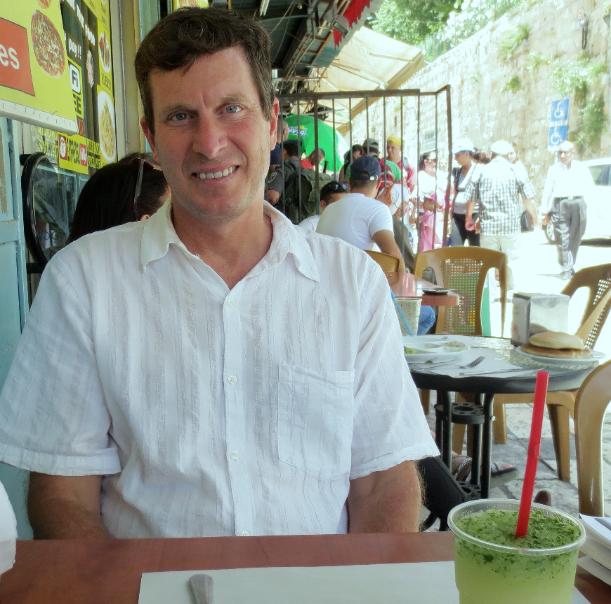
| Muslim Quarter -- Jerusalem, Israel |
| The arched gateways make for fun photo compositions |
| This arch frames a view of a church steeple atop the Mount of Olives |
| As non-Muslim tourists, we had to get in line at the Western Wall security checkpoint (the one near Dung Gate). We walked up the curving wooden bridge that climbs towards the top of the Western Wall and leads to the Temple Mount. |
| Al-Aqsa Mosque is Islam's third holiest site. It marks the spot where many Muslims believe Muhammad spoke with the prophets, then ascended to heaven and back during his Night Journey (~620 AD). |
| On display are ornate capitals and carved stonework from earlier structures on the Temple Mount |
| Simply gorgeous! |
| When you first arrive, you climb this series of steps and pass beneath the ornamental arch to reach the Temple Mount itself |
| Here's a look from even further away |
| Mmm! Falafels, hummus, baba ganoush, and iced lemonade with fresh mint |
| We eventually landed here for lunch |
| Closeup view of the Dome of the Rock from the Temple Mount itself |
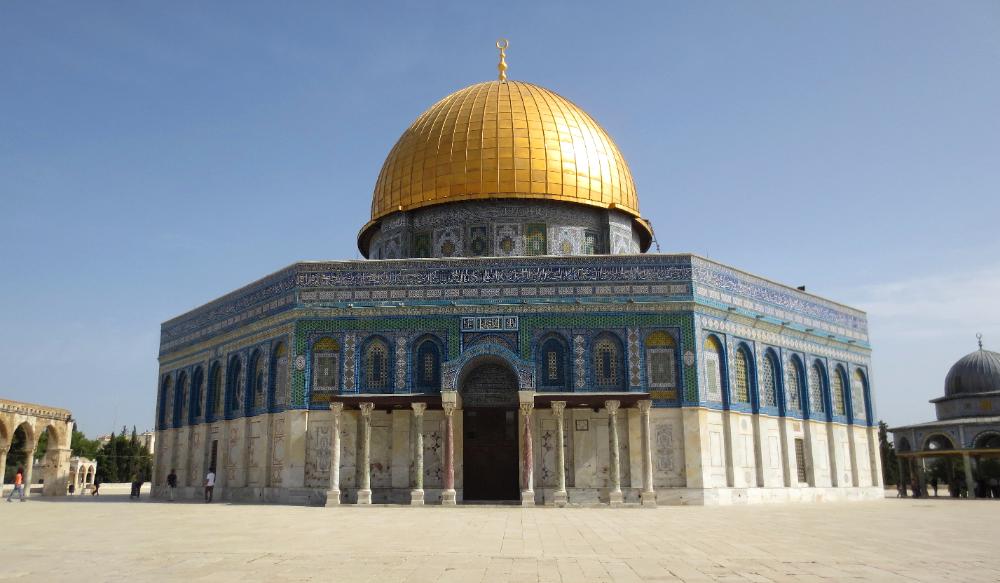
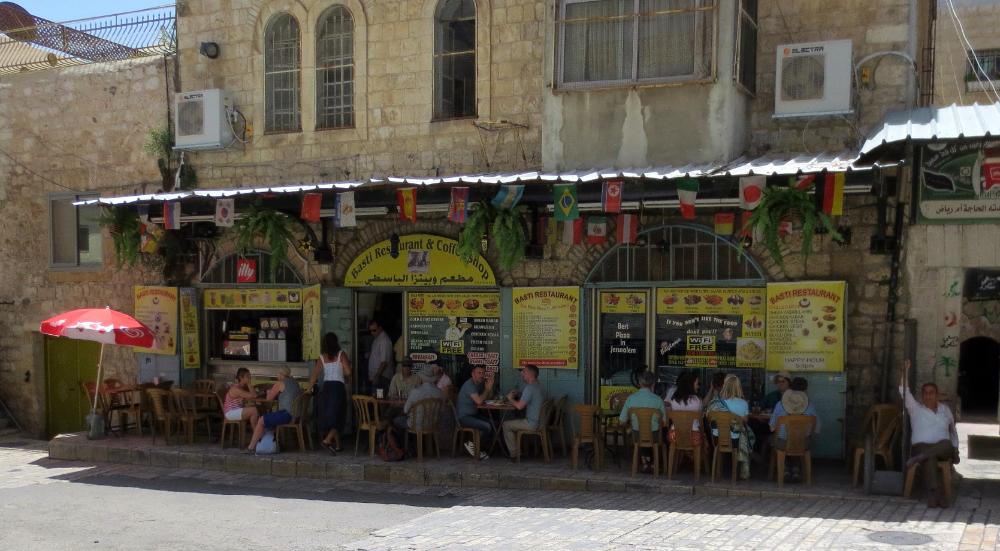
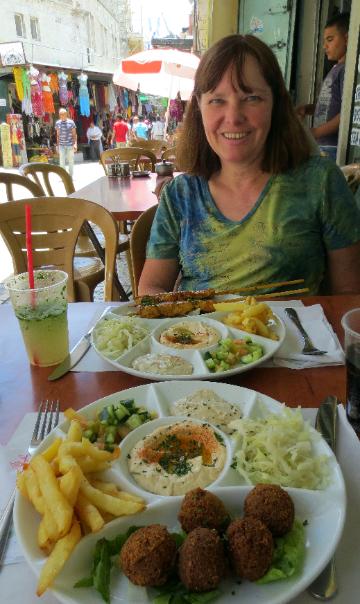
The Dome of the Rock on the Temple Mount is
THE central site in Jerusalem, along with the
Western Wall. It is a gorgeous shrine with its
gold-plated dome and blue Persian tiles, and it
perches above the city on Temple Mount plaza.
Here is where the Second Temple once stood --
the same temple Jesus visited back in the day
when he threw out the moneychangers. It also
marks the spot where the Ark of the Covenant
(containing the tablets of the Ten Command-
ments) once stood, back in the days of Solomon
and the First Temple.
What exactly is the "rock" in Dome of the Rock?
It is said to be THE rock where God stayed
Abraham's hand from sacrificing his son Isaac.
Also called the Foundation Stone, it is holy to
Jews, Christians, and Muslims alike. Before
there was a Temple Mount, there was a hill
here that many believe was Mt. Moriah, where
Abraham came to sacrifice Isaac. While most of
the hill is now hidden by the construction of the
Temple Mount itself, its flattish peak is still
visible inside the Dome of the Rock. It's
believed to be on this same spot that the Ark of
the Covenant once stood, which is why Jews all
over the world still traditionally pray in this
direction. Only Muslims are currently permitted
to enter the shrine, but it was still exciting just
to stand on the Temple Mount itself, so close to
the spiritual epicenter of three major religions.
THE central site in Jerusalem, along with the
Western Wall. It is a gorgeous shrine with its
gold-plated dome and blue Persian tiles, and it
perches above the city on Temple Mount plaza.
Here is where the Second Temple once stood --
the same temple Jesus visited back in the day
when he threw out the moneychangers. It also
marks the spot where the Ark of the Covenant
(containing the tablets of the Ten Command-
ments) once stood, back in the days of Solomon
and the First Temple.
What exactly is the "rock" in Dome of the Rock?
It is said to be THE rock where God stayed
Abraham's hand from sacrificing his son Isaac.
Also called the Foundation Stone, it is holy to
Jews, Christians, and Muslims alike. Before
there was a Temple Mount, there was a hill
here that many believe was Mt. Moriah, where
Abraham came to sacrifice Isaac. While most of
the hill is now hidden by the construction of the
Temple Mount itself, its flattish peak is still
visible inside the Dome of the Rock. It's
believed to be on this same spot that the Ark of
the Covenant once stood, which is why Jews all
over the world still traditionally pray in this
direction. Only Muslims are currently permitted
to enter the shrine, but it was still exciting just
to stand on the Temple Mount itself, so close to
the spiritual epicenter of three major religions.
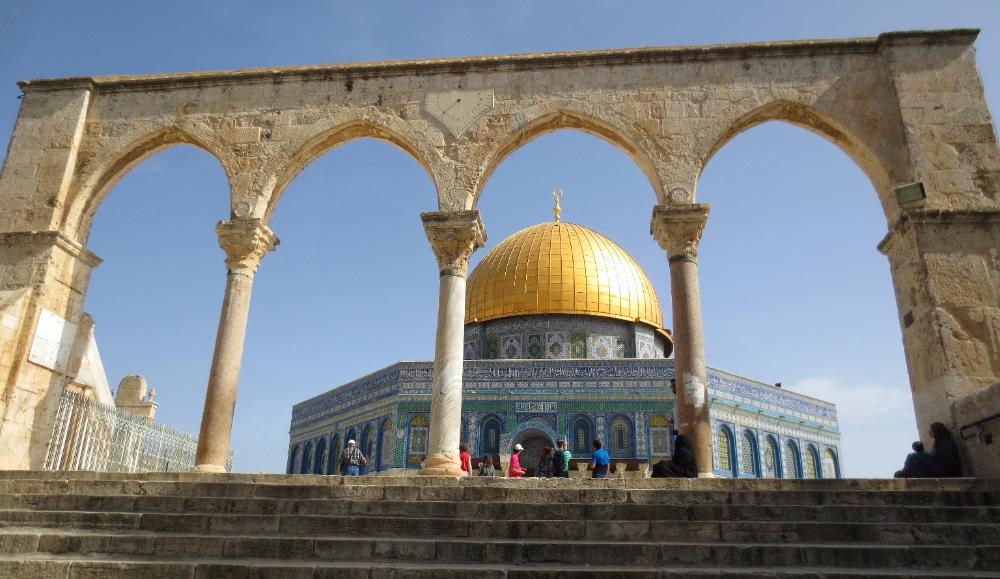
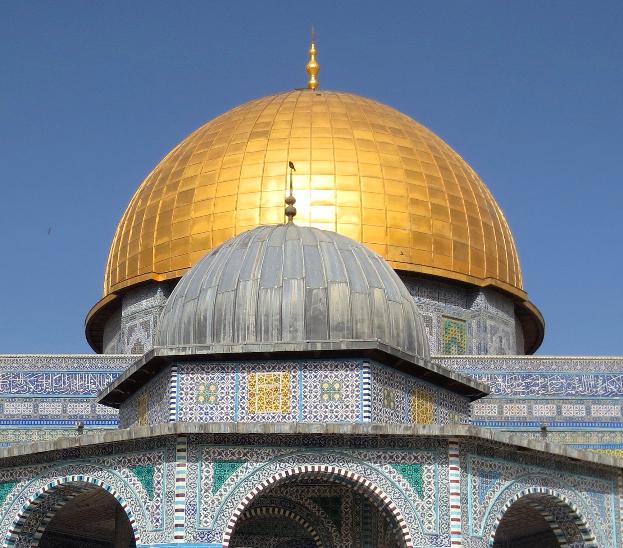
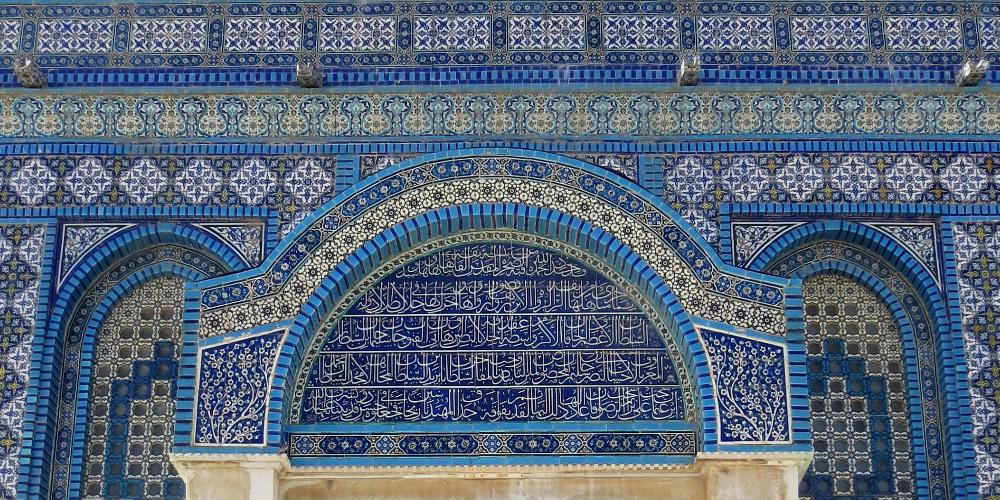
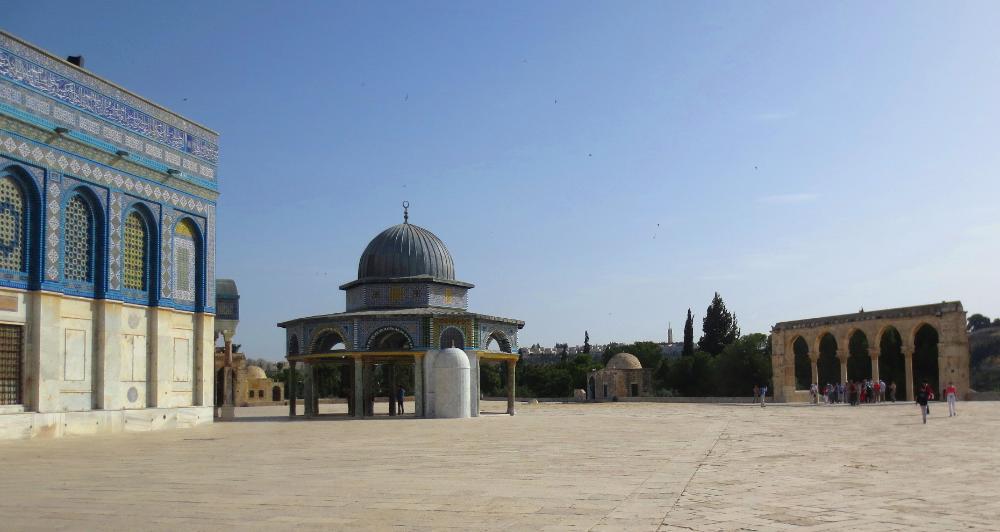
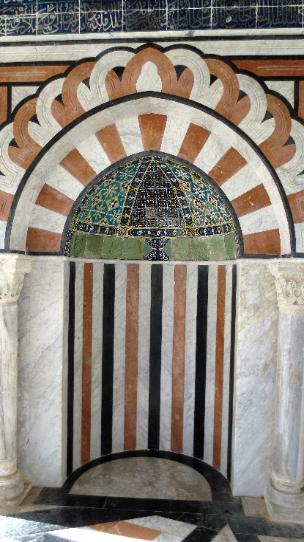
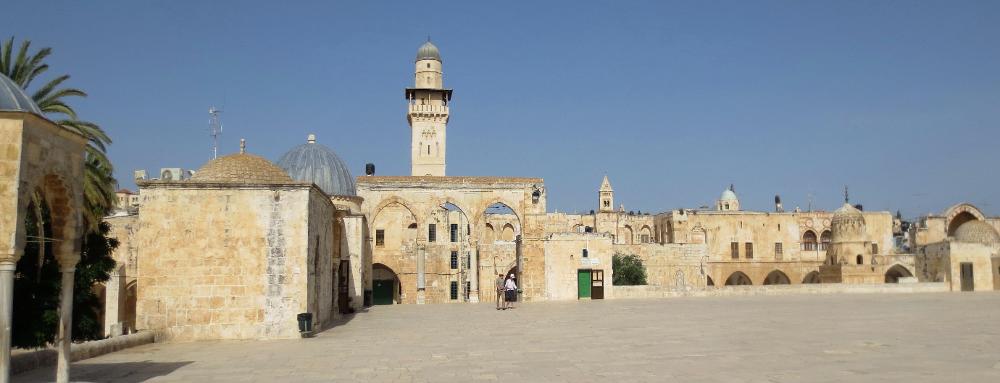
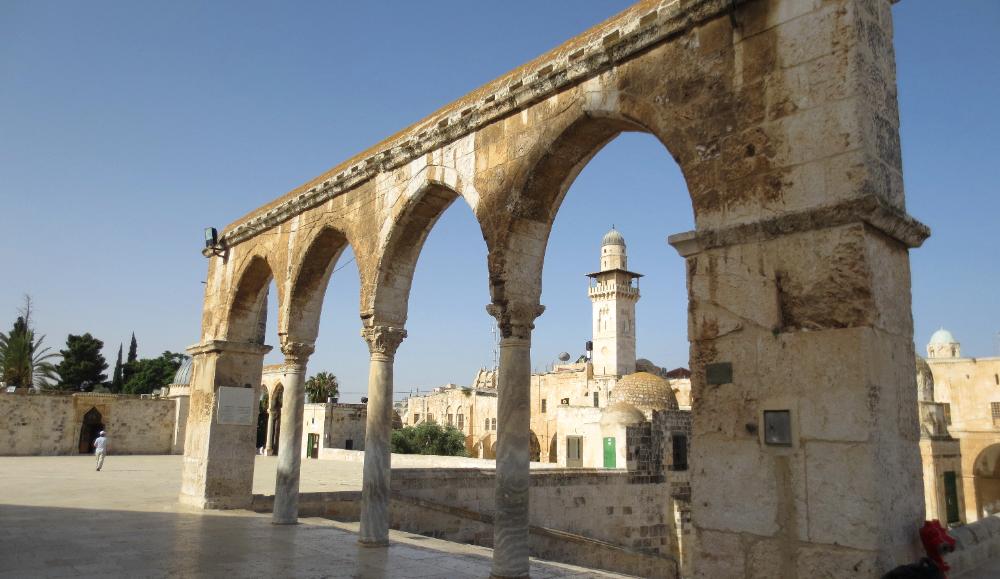
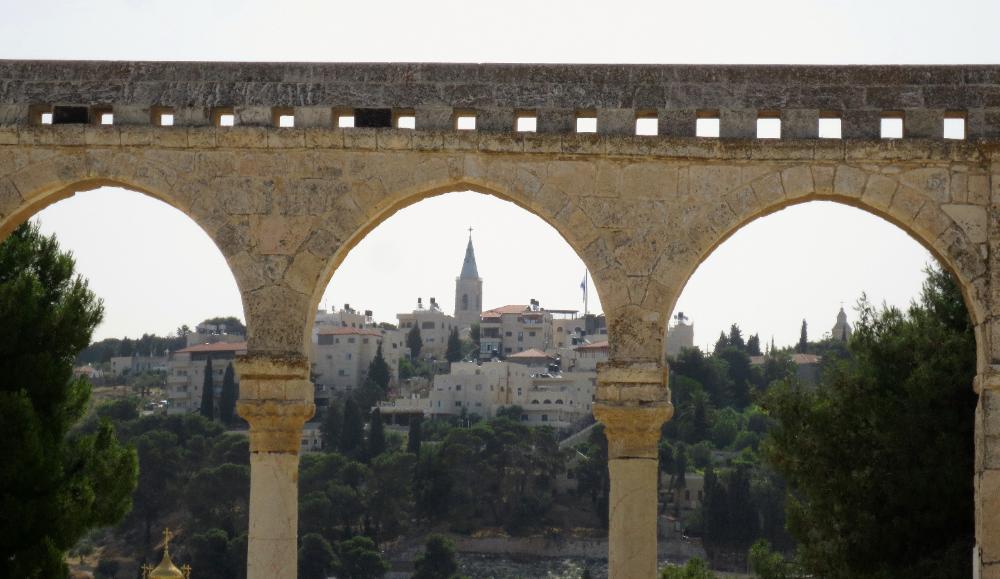
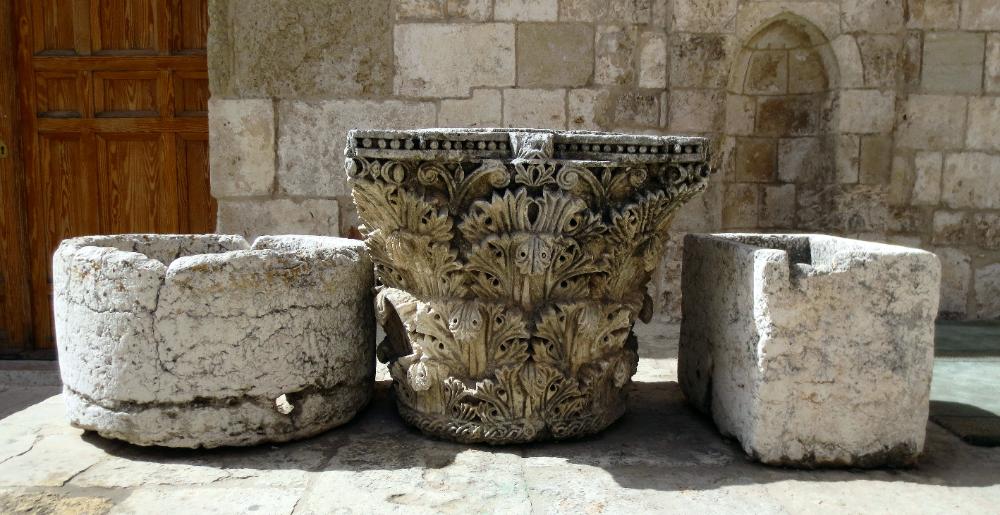
| You can see just how flat the Temple Mount is. Herod the Great built this huge plaza (about the size of six football fields) to accommodate the throngs of pilgrims arriving here at Passover and other holy days. |
| This is the colorful Dome of the Chain, a separate prayer house that sits just east of the Dome of the Rock (see the photo above) |
| Domed ceiling of Dome of the Chain |
| Modest dress is required here, as well as decorum. We watched as a guard called out "No touching!" as men and women put their arms around each other as they were taking photos. It's a natural enough thing for tourists to do, but be aware it can cause offense to some in this holy place. |
| To create the Temple Mount, Herod essentially built a huge box around Mount Moriah and filled it in. The famous Western Wall was originally simply one part of the western retaining wall for the box! |
| The Dome of the Rock, completed in 691 AD, enshrines the Foundation Stone -- sacred to Jews, Christians, and Muslims. It is the first and oldest Islamic shrine in the world. |
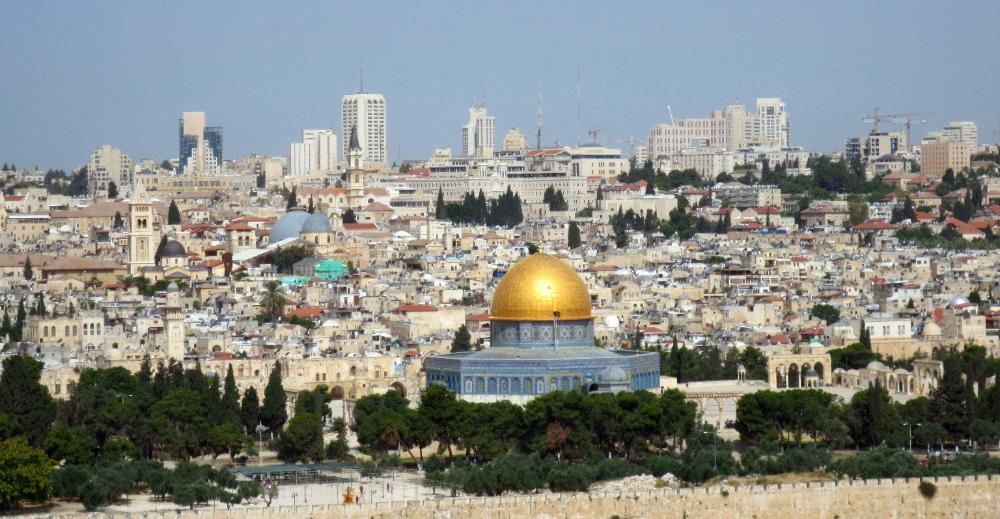
| It's a thrill to get your first glimpse of the golden dome when you arrive in Jerusalem |
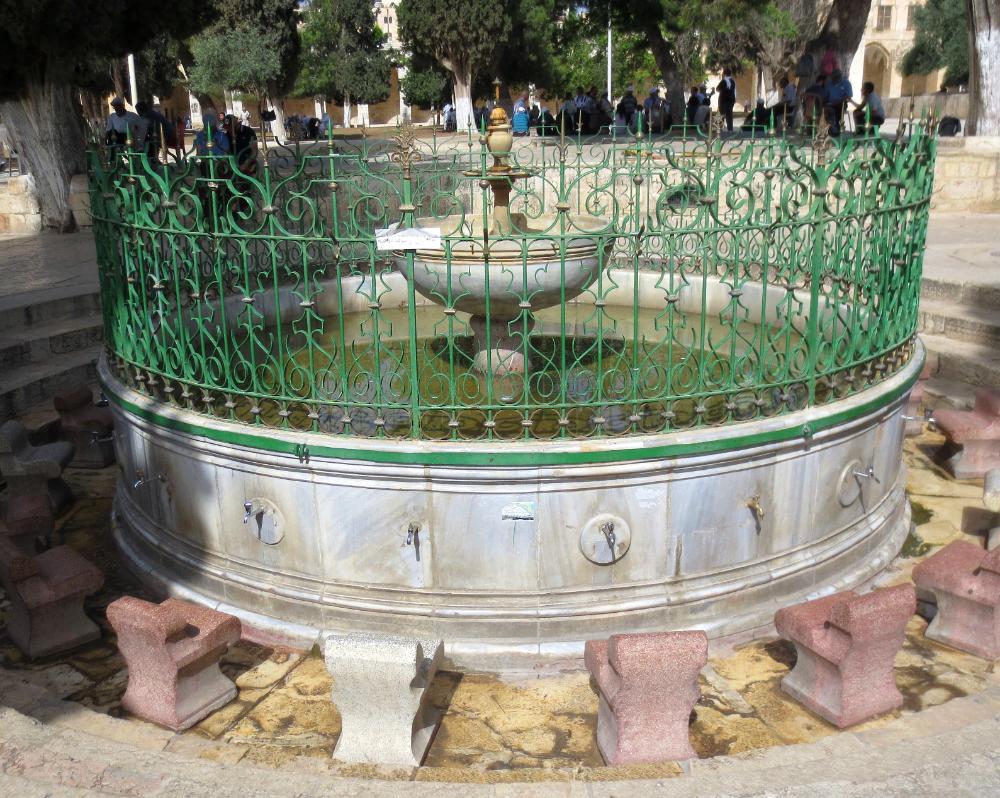
| The El Kas Fountain is a ritual cleansing fountain for Muslim worshippers. Note the seats encircling it. |
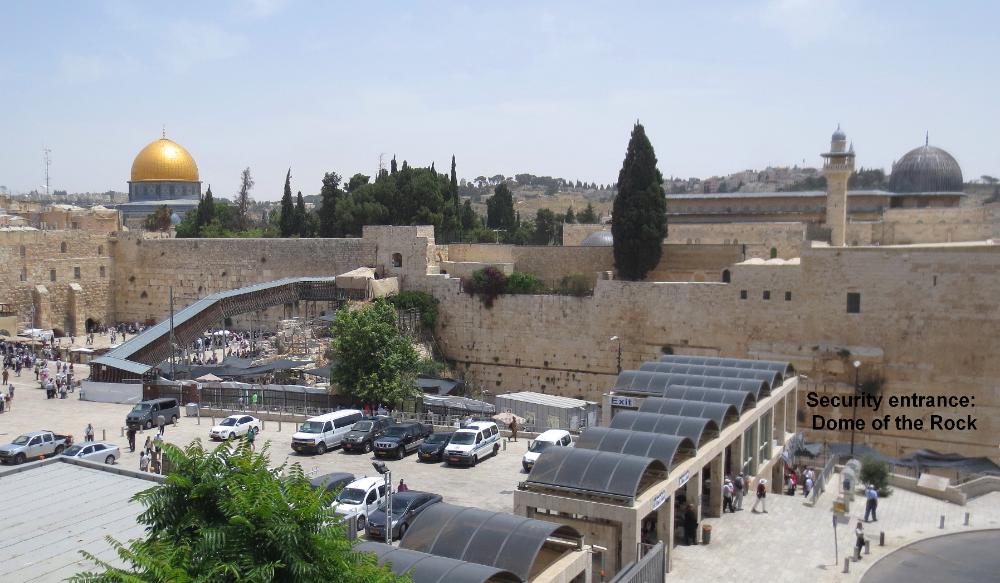
| Our lunch spot was located near Damascus Gate, the impressive main entry to the Muslim Quarter and one of two main entrances to the Old City (along with Jaffa Gate) |
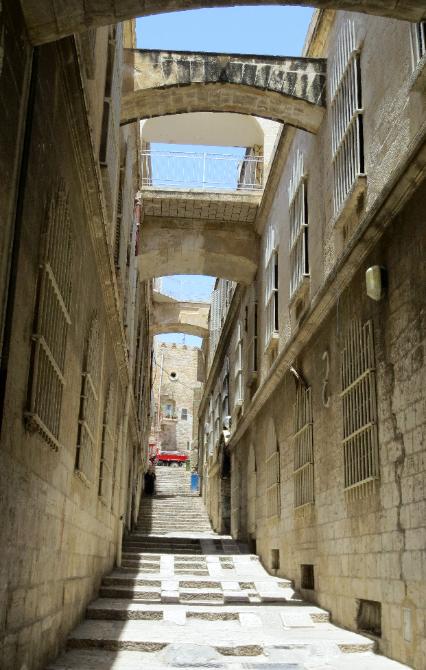
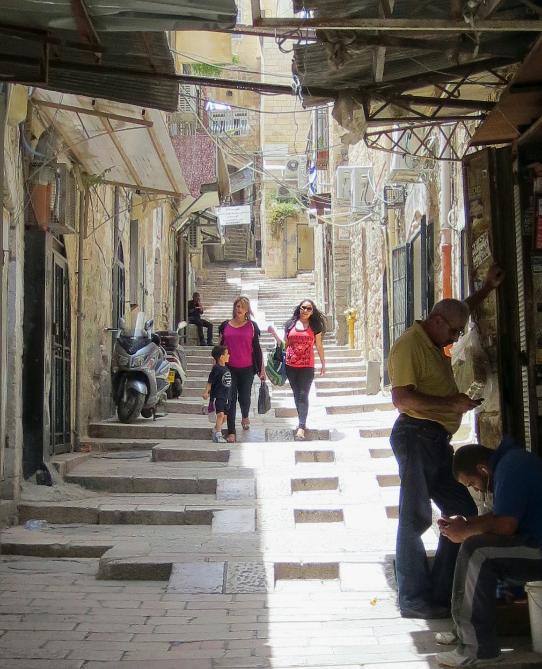
| After our visit to the Dome of the Rock, we explored some of the streets in the Muslim Quarter |
